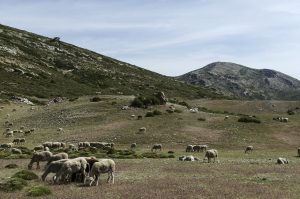 In the Mediterranean region, climate change severely threatens local agrifood systems, especially in marginal rural areas. Climate change acts in most cases as a concomitant factor, adding negative impacts to those mainly related to other direct or indirect global change drivers, such as social and cultural changes (e.g. changes in rural lifestyle, dietary habits, knowledge systems, and cultural identities), social-economic changes (e.g. rural abandonment, economic crisis, and consequent unemployment, economic subsidies) and environmental changes (e.g. land-use changes). Though climate change is a global problem that needs solutions at different geographic scales, the IPCC (2014) stresses the need to pay more attention to local experiences, knowledge systems, institutions, and practices to respond to climate change. The purpose is thus to promote changes towards transformational adaptation for social-ecological sustainability, that is, an adaptation that changes the fundamental attributes of the system (IPCC 2014: Glossary), which includes, among other options, the introduction of new practices and knowledge, and the formation of new institutions or systems of governance with the final purpose of achieving social needs. However, the implications of the gendered nature of knowledge, practices, and institutions have been neglected in climate change policies and insufficiently addressed by research.
In the Mediterranean region, climate change severely threatens local agrifood systems, especially in marginal rural areas. Climate change acts in most cases as a concomitant factor, adding negative impacts to those mainly related to other direct or indirect global change drivers, such as social and cultural changes (e.g. changes in rural lifestyle, dietary habits, knowledge systems, and cultural identities), social-economic changes (e.g. rural abandonment, economic crisis, and consequent unemployment, economic subsidies) and environmental changes (e.g. land-use changes). Though climate change is a global problem that needs solutions at different geographic scales, the IPCC (2014) stresses the need to pay more attention to local experiences, knowledge systems, institutions, and practices to respond to climate change. The purpose is thus to promote changes towards transformational adaptation for social-ecological sustainability, that is, an adaptation that changes the fundamental attributes of the system (IPCC 2014: Glossary), which includes, among other options, the introduction of new practices and knowledge, and the formation of new institutions or systems of governance with the final purpose of achieving social needs. However, the implications of the gendered nature of knowledge, practices, and institutions have been neglected in climate change policies and insufficiently addressed by research.
AGATA project investigates novel knowledge systems, practices, and institutional-political arrangements that are influencing transformational adaptation to climate change in marginal mountain agri-food systems in Mediterranean contexts.
